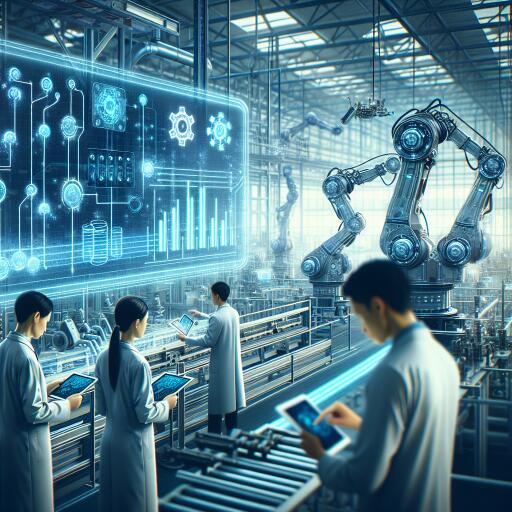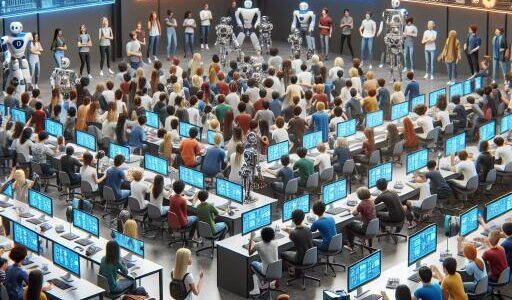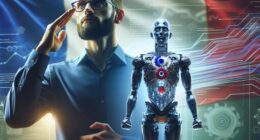Transforming Industries: Advanced AI and Machine Learning in Action
The landscape of multiple industries is shifting rapidly, thanks to the innovative applications of Artificial Intelligence (AI) and Machine Learning (ML). These technologies are not just buzzwords but pivotal tools reshaping the way businesses operate, enhance customer experience, and streamline operations. At the forefront of this transformation is the strategic use of AI and ML to not only address current industry challenges but to also predict and prepare for future needs.
Driving Innovation Through AI and ML
One significant breakthrough in the application of AI and ML technologies is observed in the corporate housing sector, where they have been leveraged to enhance operational efficiency and significantly improve the customer booking experience. For example, the development of AI-powered features has revolutionized how customers find and book temporary housing. By analyzing user input—such as desired dates, number of bedrooms, rates, and proximity to work locations—an AI-driven system can now recommend the most suitable options available, streamlining the entire booking process and drastically reducing the time it takes for customers to find their ideal accommodation.
The power of AI doesn’t stop there. Behind the scenes, machine learning models are employed to optimize everything from predictive maintenance schedules to dynamic pricing models, ensuring that the business not only runs more efficiently but also can pass on cost savings and improved service quality to its clients.
Innovative Solutions for Modern Problems
Among the suite of advanced solutions brought about by AI and ML is a customizable personalization engine, designed to tailor customer experiences down to individual preferences. This engine, alongside a predictive system for maintenance and a smart pricing algorithm, demonstrates the real-world application of complex AI technologies in solving intricate industry challenges, leading to enhanced service offerings for clients.
Automation, particularly through Robotic Process Automation (RPA), has been instrumental in transforming business processes. By automating routine and repetitive tasks, resources are reallocated to focus on higher-value activities, elevating the service level provided to customers and enhancing overall productivity and efficiency within the organization.
Education: The Backbone of Innovative Problem-Solving
The foundation of any successful application of technology lies in a deep understanding of its principles and potential. A robust educational background in computer science and digital transformation, emphasizing AI, ML, and data analysis, equips professionals with the tools necessary to develop sophisticated solutions. From utilizing programming languages like Python and R to deploying AI tools such as TensorFlow, the capacity to create scalable, data-driven solutions is essential.
Moreover, strategic insights into leveraging emerging technologies are critical for integrating innovative solutions that align with business goals, optimizing operations, and enhancing customer experiences. This strategic viewpoint, when paired with technical knowhow, enables the design of systems that are not only innovative but also deeply aligned with enhancing business value and service quality.
Looking Ahead: The Future of AI and ML in Industry
The future of AI and ML holds promising advancements including the rise of explainable AI, the integration of AI with Internet of Things (IoT) devices, advances in natural language processing, and the increasing adoption of edge computing. These advancements are set to further revolutionize industries by enhancing automation, improving security, and enabling more accurate predictive analytics.
Staying ahead of these trends requires a dedication to continuous learning and experimentation. Engaging with the latest research, participating in professional networks, and applying new technologies through pilot projects are essential practices for any professional looking to leverage AI and ML effectively. This approach ensures the delivery of innovative, efficient, and impactful solutions that keep pace with industry evolution.
Conclusion
The application of Artificial Intelligence and Machine Learning is transforming industries by driving innovative solutions to modern challenges. Through strategic integration of these technologies, businesses can enhance operational efficiency, improve customer experiences, and stay competitive in rapidly evolving markets. The journey towards digital transformation is complex, requiring a solid educational background, continuous learning, and strategic vision. However, the potential to redefine industry standards and create significant value for both businesses and their clients makes this journey worthwhile.
The future of AI and ML in industry is bright, with ongoing advancements paving the way for smarter, more efficient business processes. Professionals leading this charge are not just solving today’s problems but are also laying the groundwork for future innovations that will continue to transform the business landscape.










